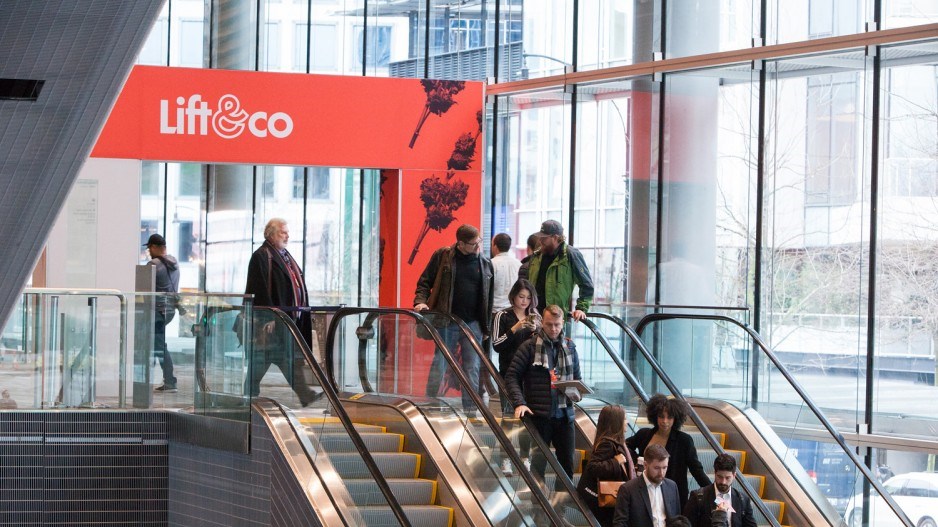What happened: While hosting cannabis-related events remains the bread-and-butter revenue stream for Lift & Co. (CSE:LIFT), the company that is holding its annual Vancouver business conference and expo January 9 through 12 has started to pay more attention to how it can generate revenue from customer data.
Why this matters: It is the latest example of a company in the hard-hit cannabis sector, where stock prices have plunged, to try to pivot and add separate revenue streams.
Long known as the company that puts on major conferences annually in Vancouver and Toronto, Lift & Co. has started to branch out. Not only is it now producing an annual cannabis awards event in Toronto in November, but it has also started to diversify its revenue streams.
Data-related sales are its fastest-growing revenue stream.
So it is no wonder that the importance of effectively using consumer data is a topic that will be front and centre at its January 9 business conference.
Lift & Co.’s intent is to teach industry insiders how to convert data into increasing sales at their own companies because once those insiders understand the value of data, they are likely to buy the information from Lift & Co.
"We help the producers across Canada get legal, recreational product to the consumer," Lift & Co. chief revenue officer Jon Kamin told Business in Vancouver. "It's all about building brand awareness, and understanding consumers."
The company keeps close tabs on whether cannabis consumers are buying pre-rolled joints, dried flower, aphrodisiac oil, edibles or other forms of the plant. Its age-gated surveys and customer-review site helps identify how demographics plays into individual buying decisions and whether buyers are online or in stores.
If data shows that middle-aged, outdoor enthusiasts tend to buy pre-rolled joints online, a small licensed producer in B.C. that specializes in pre-rolls and aims to attract those buyers could theoretically develop a more effective business plan, Kamin said.
Product delivery could be prioritized to government online sales, and corporate marketing dollars could be spent on sponsoring events related to outdoor activities, for example.
“It’s not so much consulting that we do,” he said. “We provide the data, and if you’re looking for our opinion, we’ll be happy to render it, but it is more of a data product for the [licensed] producers.”
Lift & Co.’s aim is to increase its fast-growing revenue stream of providing data insights to licensed cannabis producers and retailers.
While Lift & Co. generated $3.09 million from hosting events in the six months that ended on September 30 – 83% of its $3.7 million in overall revenue – only $388,150 came from selling consumer data.
The data revenue is only about an eighth as much as Lift & Co. generates from hosting events, but data revenue for the company increased by about 150% in those six months in 2019, compared with the same period in 2018, when only $154,977 came from data-related sales.
Lift & Co. continues to lose money – $929,908 in the six months that ended on September 30, but given that it lost more than $4.2 million in that same timeframe in 2018, the company has narrowed its losses considerably.
Like almost all companies in the cannabis sector, Lift & Co.’s share price was pummeled in 2019. The company’s shares closed at $0.075 on January 8. That is down from a 52-week high of $0.69 in February.
About 700 people are expected to go to the Vancouver Convention Centre on January 9 for the company’s business conference – an event for which tickets cost $597.45. Another 18,000 people are expected to attend the expo, which is broken into two days and is likely to feature about 200 exhibitors. Industry day is January 10, and tickets cost $85.05 per person. Saturday is when the general public is invited, and tickets cost $10 each.




